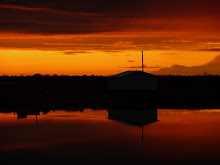Essential Question: How do stories of cataclysmic events help inform students about geosciences and cultures?
Stories about cataclysmic events helps to inform student by showing them what happens during such events.
Stories can make an event that seems otherworldly more personal. Something that happened hundreds of thousands of years ago does not seem very relevant to a student. If you can make it relevant to the student by using stories to make a personal connection, students are more likely to internalize the information. The 1964 Earthquake was more real to me after I heard a staff member talk of her personal experience. I had a personal connection to it. I listened more intently when I heard it mentioned during my summer class or the videos shown on TD. I took more interest in the why and the what. Recently with the heart breaking stories coming out of Haiti, the media coverage brought something that happened thousands of miles away and made it personal to their viewers. If an event is thought to be relevant by a student, the student is more likely to pay attention, study and research the event.
Stories about cataclysmic events helps to inform student by showing them what happens during such events. By knowing what happened to the dock in Valdez, we know what was taking place underneath. We know that pressure was built up in the earth and had to be released. We learn of the process that turned the loose sediment to liquid. We learned that the ground dropped and tsunamis came as a result. We can learn this by studying the stories of what happened to the docks.
Stories are also important in the traditional to inform us of what is going on. Before the class started I watch a program on the devastating tsunami of 2004. A small section of the program was about a scientist who was studying a primitive tribe on an isolated island. The tribe had no warning system, and no way of being warned, even if there had been time. The scientist fully expected to be met with total devastation when he went to check on them but was surprised to find that no one was killed. Everyone in the tribe had survived by going to higher ground before the big waves struck the beach. They knew to leave the beach when the water receded due to a traditional story. The forces of the earth and water were tugging and pulling on the tree that the world is balanced on. Their wisdom said that it was not safe to be by the boundaries of earth and water until the fighting was over.
Subscribe to:
Post Comments (Atom)


Wow! The story of indigenous knowledge and wisdom in Indonesia is great. Wonderful example.
ReplyDelete